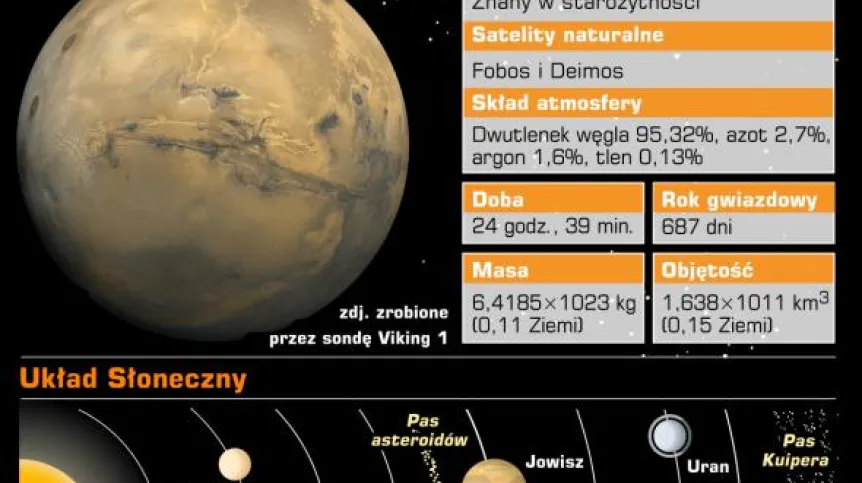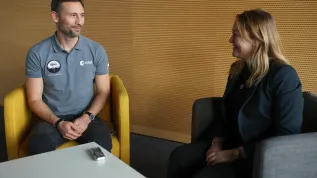
<strong>Europe's first Mars Base that will enable scientific research and gaining knowledge of the Red Planet specificity, may be established in Toruń. </strong>Representatives of the Mars Society Polska (MSP) - the originators of the facility construction idea - met with city authorities, including President Michał Zaleski, and will now select the best location for future Base.
As the MSP spokesman Łukasz Wilczyński explained in an interview with PAP, Polish Base will differ from its counterparts in the U.S. and Canada, which only serve to study the conditions of the stay on Mars, therefore being hermetic and closed to the public. Scientists working there study living in bases, conditions of which resemble life on Mars. For a month, participants of research teams leave the base only in space suits, and their main occupation is collecting and cataloguing rock samples.
"Our base will also have a tourist function, because it is difficult to find a similar attraction in Europe. This will not, however, be Disneyland, but rather a place of educational tourism - noted Wilczyński.
He indicated that students would be able to come here for a integration trips and astronomy, astronautics or geology lessons. The Base will allow to learn about the results of Mars research so far, see animations of the Red Planet, and even an exhibition of Martian soil samples. "We will try to add elements that will create an impression of real Mars Base - assures Wilczyński.
The Mars Base will also be a scientific centre, which will enable obtaining research grants, especially for the Nicolaus Copernicus University. "In terms of the ongoing projects, the MSP is already working with Polish universities, which include Warsaw University of Technology, Białystok University of Technology, and Cardinal Stefan Wyszyński University in Warsaw" – added Mateusz Józefowicz, president of Mars Society Polska.
Organisers would also want to be able – like in the global space sector – to establish small businesses based on research projects conducted at the Base.
Wilczyński explains that received location proposals will now be analysed in detail. Specialists will review, among other things, the ground conditions and access roads. "This will be a scientific and tourist-business facility, so we would prefer, for instance, not to have supermarkets in the vicinity. We want the base to have telecommunications function as well, so the proximity of facilities that produce a strong magnetic field could also be problematic" - explained Wilczyński.
Jacek Olkowski, the Mars Base Analogue project leader explains that the project team, which has been established in the course of the talks, will review not only the locations, but also different concepts of the project of the Base itself. In subsequent stages the location will be selected and the conditions for the plot transfer determined. "We will also need to determine the source of funding and consider, which EU funds may be used” - added Wilczynski.
***
Mars Society Polska is a branch of the Mars Society, which aims to achieve a manned mission to Mars and to promote the idea of Mars research. The organization brings together experts in the field of astronautics, scientists and filmmakers. Among them are Robert Zubrin, who created the project of Mars colonization, and American astronaut Buzz Aldrin, who took part in the first landing on the Moon.
PAP - Science and Scholarship in Poland, Ewelina Krajczyńska, tr. RL
kap/
Fundacja PAP zezwala na bezpłatny przedruk artykułów z Serwisu Nauka w Polsce pod warunkiem mailowego poinformowania nas raz w miesiącu o fakcie korzystania z serwisu oraz podania źródła artykułu. W portalach i serwisach internetowych prosimy o zamieszczenie podlinkowanego adresu: Źródło: naukawpolsce.pl, a w czasopismach adnotacji: Źródło: Serwis Nauka w Polsce - naukawpolsce.pl. Powyższe zezwolenie nie dotyczy: informacji z kategorii "Świat" oraz wszelkich fotografii i materiałów wideo.













